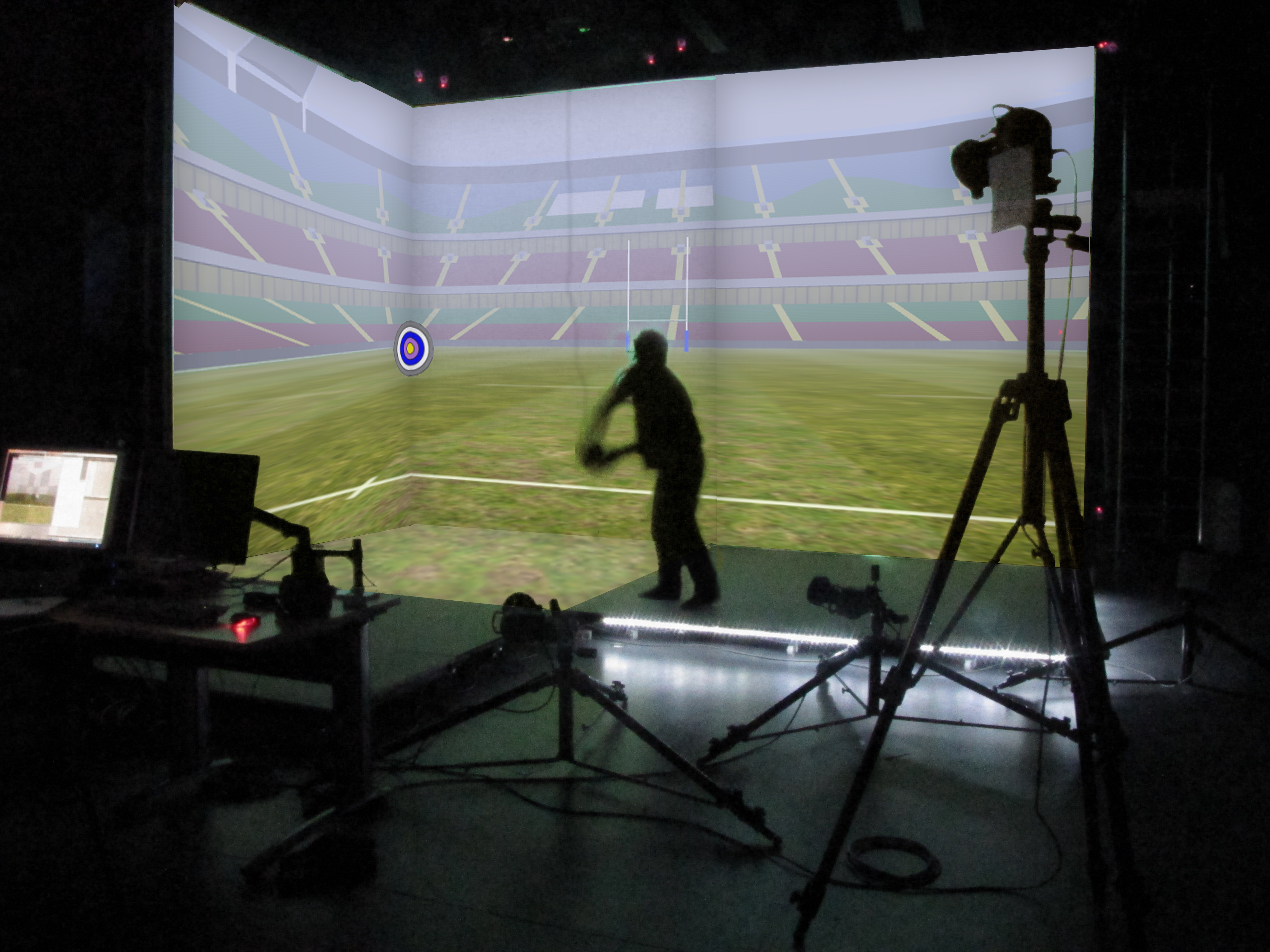Title : Virtual Environment for Rugby Skills Training (VERST)
Project Lead : Nigel JOHN From : Bangor University (None)
Dates : from 2013-03-18 00:00:00 to 2014-01-06 18:35:07
Description :
Motivation and objectives :
Virtual reality techniques are already being used in sport to assist with analysis of tactics or body movements, with the aim of providing a competitive advantage to the athlete. The technology currently available is reaching a point where more sophisticated virtual environments for sports training may be possible. The Virtual Environment for Rugby Skills Training (VERST) project is investigating and developing an advanced environment aimed primarily at rugby skills training the national sport of Wales. The research hypothesis is that virtual environment technology can be used for training complex rugby manoeuvres and so help provide skills acquisition to the player and his team. This is a multi-disciplinary project with expertise provided from computer science (including a full time PhD student), sports sciences and psychology academics, together with input from rugby players and coaches. A particular motivation is to contribute to a future Rugby World Cup win by Wales!
Teams :
The Visualization & Medical Graphics (VMG) group is the largest research group within the School of Computer Science at Bangor University. It currently consists of seven academic staff, seven postdoctoral researchers, and five PhD students. We are a founding member of the Wales Research Institute of Visual Computing.
Dates :
starting date : 18 March, 2013
ending date : 29 March, 2013
Facilities descriptions :
http://visionair-browser.g-scop.grenoble-inp.fr/visionair/Browser/Catalogs/CRVM.FR.html
Recordings & Results :
Virtual reality techniques are already being used in sport to assist with analysis of tactics or body movements, with the aim of providing a competitive advantage to the athlete. The technology currently available is reaching a point where more sophisticated virtual environments for sports training may be possible. The Virtual Environment for Rugby Skills Training (VERST) project is investigating and developing an advanced environment aimed primarily at rugby skills training the national sport of Wales. The research hypothesis is that virtual environment technology can be used for training complex rugby manoeuvres and so help provide skills acquisition to the player and his team. This is a multi-disciplinary project with expertise provided from computer science (including a full time PhD student), sports sciences and psychology academics, together with input from rugby players and coaches.
Conclusions :
The system was prepared to provide an experiment consisting of 280 trials: 2 participant positions (L/S) x 2 stereo/non-stereo (S/NS) x 2 floor/no floor (F/NF) x 7 target distances x 5 repetitions at different rotations around the user. A single configuration (L/S, S/NS, F/NF) was 35 trials long; although the configuration order was varied between participants, the group of 35 trials were performed together. Four participants took part in the experiment, each with at least 10 years of experience playing rugby. During each trial the participant had 5 seconds to make an attempt to hit the target, with 1 re-attempt available if they were not within the time limit or the Vicon failed to obtain data. Results: For each participant, the data collected from each trial: The position of the target in the scene The position and orientation of the tracked glasses (giving user position) The position and time data collected by the Vicon cameras The last tracked position of the ball to send to the physics engine The velocity of the ball derived from the Vicon data to send to the physics engine Future Work: The data will be analysed to look into the effect of the different configurations on the participant's throws. The physics engine data will also be analysed to look into the effectiveness of the engine at producing an accurate throw. Communication : Investigation of a Virtual Environment for Rugby Skills Training Helen C. Miles, Serban R. Pop, Simon J. Watt, Gavin P. Lawrence, Nigel W. John, Vincent Perrot, Pierre Mallet and Daniel R. Mestre. In CyberWorlds, 2013. CW'13. International Conference. IEEE.
Project Images :


.

VISIONAIR / Grenoble INP / 46 avenue Felix Viallet / F-38 031 Grenoble cedex 1 / FRANCE
Project funded by the European Commission under grant agreement 262044

Project funded by the European Commission under grant agreement 262044
